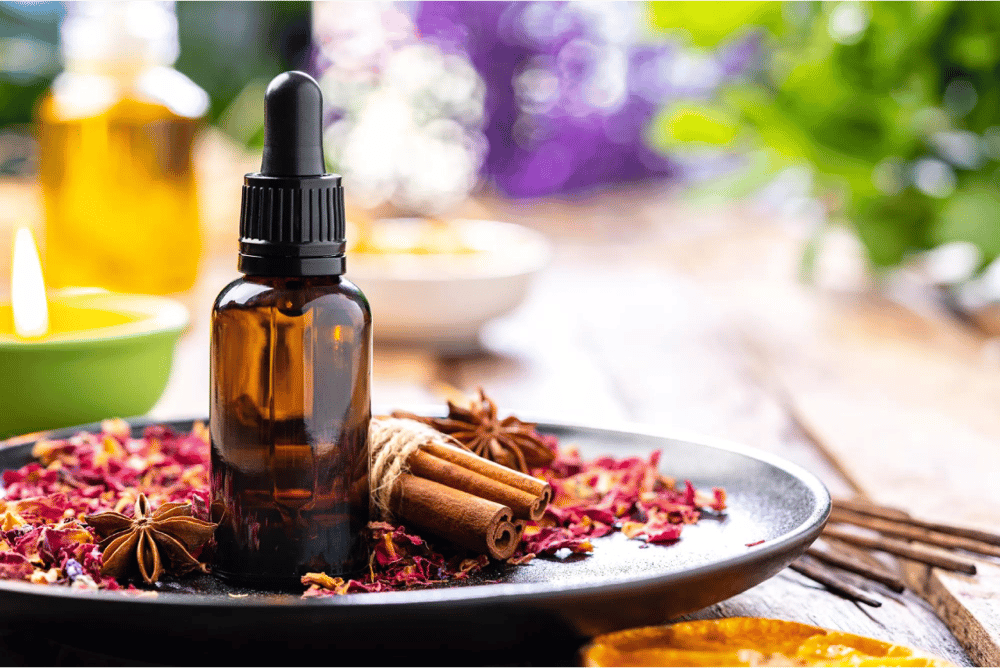In a world overrun by stress and screens, essential oils promise calm in a bottle. But is aromatherapy a legitimate science—or just a fragrant placebo wrapped in wellness marketing? Let’s unpack the truth behind the trend.
Aromatherapy in the Age of Anxiety: Science or Scented Placebo?
Written by Sumit Kaushik

In our hyperconnected, overstimulated world, where mental health is talked about every day and burnout is a badge of honor, many are relying on alternative treatments for relief. Among the most well-loved is aromatherapy—a wellness trend turned industry titan that has claimed to deliver peace, calm, and clarity with the sheer act of smelling something pleasant.
But beneath the calming aromas of eucalyptus, lavender, and frankincense is a more profound question: is there actual science to back up its use for calming anxiety—or is aromatherapy merely a pretty bottled placebo?
What Is Aromatherapy?
Essentially, aromatherapy is the application of natural plant extracts—essential oils—to enhance physical and emotional health. These oils are usually inhaled, diffused, or applied topically in diluted form using a carrier oil.
Based on ancient healing traditions from Egypt, China, and India, aromatherapy has, for centuries, been a part of holistic medicine. Now, it's ubiquitous—everywhere from high-end spas and yoga centers to hospital rooms and psychiatric hospitals.
The Anxiety Epidemic: A Modern Crisis
Prior to considering aromatherapy, keep this in mind: we are experiencing what some call an "age of anxiety."
The World Health Organization (WHO) says anxiety disorders are the most prevalent mental illness worldwide.
Stress after the pandemic, financial insecurity, pressure on social media, and fear of climate have left individuals feeling drained emotionally.
Classic treatments such as medication and counseling work well—but also costly, time-intensive, and in some communities stigmatized.
This has left a wellness gap. Aromatherapy moved into that gap as a fast, non-invasive, and inexpensive option for daily emotional regulation.
Aromatherapy & the Brain: How It Could Work
Smell is one of the strongest senses and is closely connected with memory and emotion.
When you breathe in an essential oil:
- The olfactory receptors in your nose transmit signals to the olfactory bulb.
- This bulb directly addresses the limbic system, particularly the amygdala (emotions processor) and hippocampus (memory area).
- Specific scents may prompt calming or invigorating brain activity, suppressing cortisol (the stress hormone) or elevating serotonin and dopamine (happy chemicals).
This explains why lavender will make you drowsy, peppermint might get you thinking, and citrus oils will pick up your mood.
What the Science Says: Promising, Not Proven
Scientific research into aromatherapy's effects on anxiety yield interesting but mixed results:
✅ What Supports It:
Lavender Oil (Linalool):
Several studies indicate that it can decrease anxiety and induce sleep, even as a substitute for benzodiazepines in mild cases.
A 2017 review in Evidence-Based Complementary and Alternative Medicine found lavender oil inhalation reduced anxiety scores in dental and pre-operative patients by a significant amount.
Bergamot & Citrus Oils:
A 2020 systematic review reported mood-elevating and anxiety-reducing effects, particularly when diffused in work or hospital settings.
Ylang Ylang, Rose, Chamomile:
These oils have shown calming physiological effects such as decreased heart rate and decreased blood pressure in small clinical trials.
❌ The Caveats:
Most studies are plagued by small sample sizes, brief durations, or absence of placebo groups.
- Scent is subjective, i.e., personal associations (positive or negative) significantly affect effectiveness.
- Some tests show no quantifiable effect above that which placebo would provide—particularly for clinical-level anxiety disorders.
Is the Placebo Effect Still a Victory?
Here's a twist: placebo isn't failure—it's strong.
When your brain is convinced a treatment will work, it can nonetheless trigger actual healing responses:
- Reduced cortisol levels
- Better mood
- Better sleep
- Less tension in the body
So if your evening lavender diffuser or afternoon peppermint roll-on centers you, do you care why it works?
In health, perception becomes reality. So long as expectations and safety are controlled, the distinction between placebo and plant power becomes beautifully obfuscated.
The Cautionary Side of Aromatherapy
Though essential oils appear innocuous, they're intensely concentrated bioactive compounds and must be handled carefully:
Skin Irritation: Cinnamon or oregano oil can burn skin if applied straight.
Allergies & Sensitivities: Some people develop headaches or respiratory problems from a particular fragrance.
Hormonal Disruption: Tea tree and lavender oils have been reported in isolated instances for endocrine disruption.
Pets & Children: Most essential oils are toxic to pets and should be applied with caution around children.
Also, since the industry is not well regulated, purity and quality are extremely varied. Look for:
- GC/MS testing
- Organic sourcing
- Transparent labeling
- Reputable brands (not influencers)
How to Use Aromatherapy Effectively for Anxiety
Here are some evidence-based, mindful tips on how to include aromatherapy in your mental wellness practice:
1. For Sleep & Stress:
Diffuse lavender, cedarwood, or chamomile at night.
Pair oils with wind-down activities such as reading, gentle stretching, or journaling.
2. During Meditation or Breathwork:
Frankincense, sandalwood, or clary sage can be used to enhance emotional grounding.
Add 1–2 drops on wrists or neck with a carrier oil.
3. To Improve Focus at Work:
Experiment with peppermint, rosemary, or lemon in a desktop diffuser.
Employ a roll-on at break time for sensory reboot.
4. In Baths or Showers:
Add a few drops of eucalyptus or bergamot to steam for tension release.
Final Thoughts: Nature, Neuroscience, and Nuance
Aromatherapy isn't a fix-all. It won't take away panic attacks or address complex trauma. But it can be a subtle, accessible weapon in your emotional well-being kit—particularly when utilized in combination with evidence-based mental health interventions like:
- Cognitive Behavioral Therapy (CBT)
- Journaling & meditation
- Social support
- Movement & nutrition
In the era of anxiety, healing isn't always prescription-driven. At times, it begins with a breath—and the fragrance that travels with it.